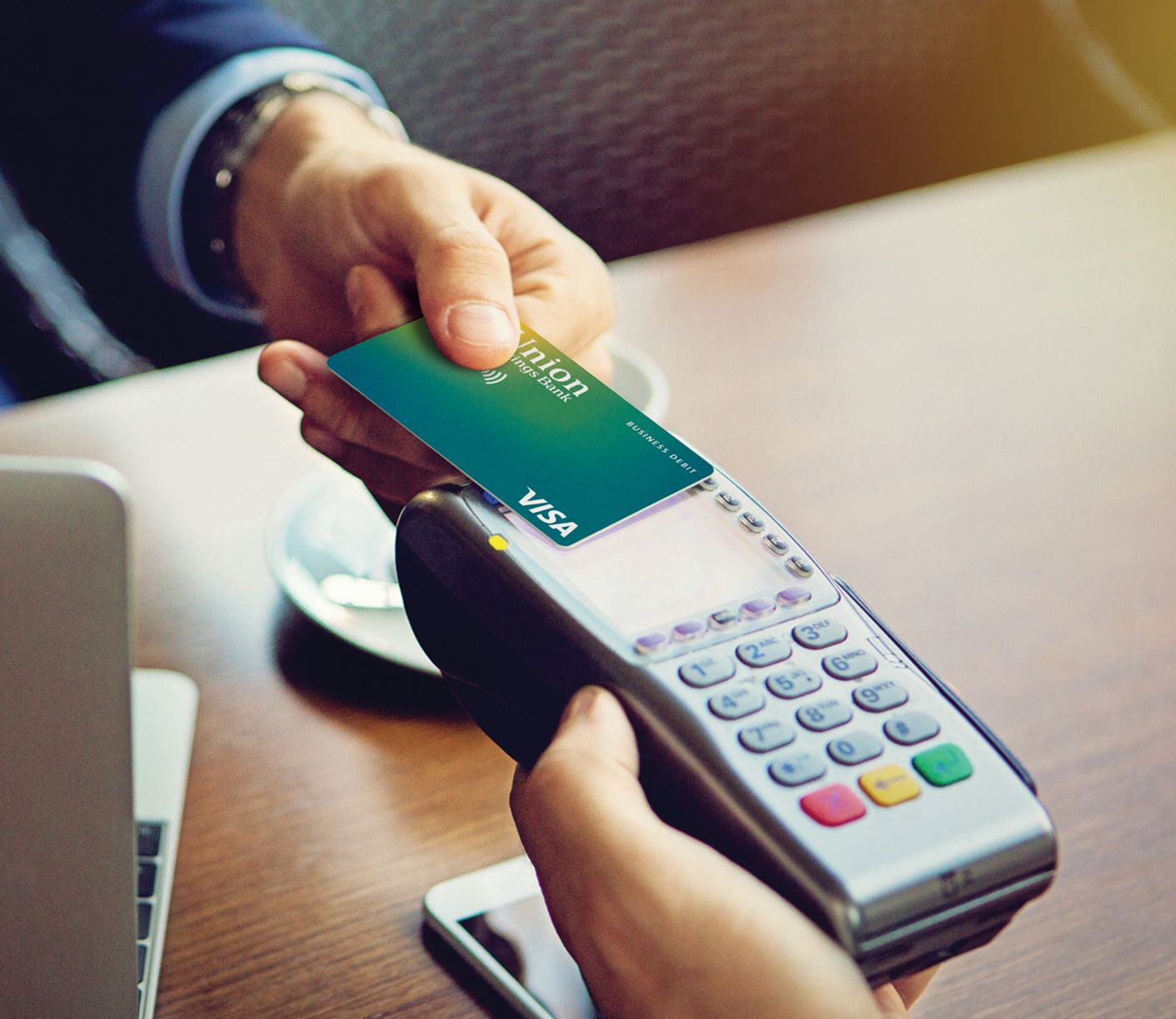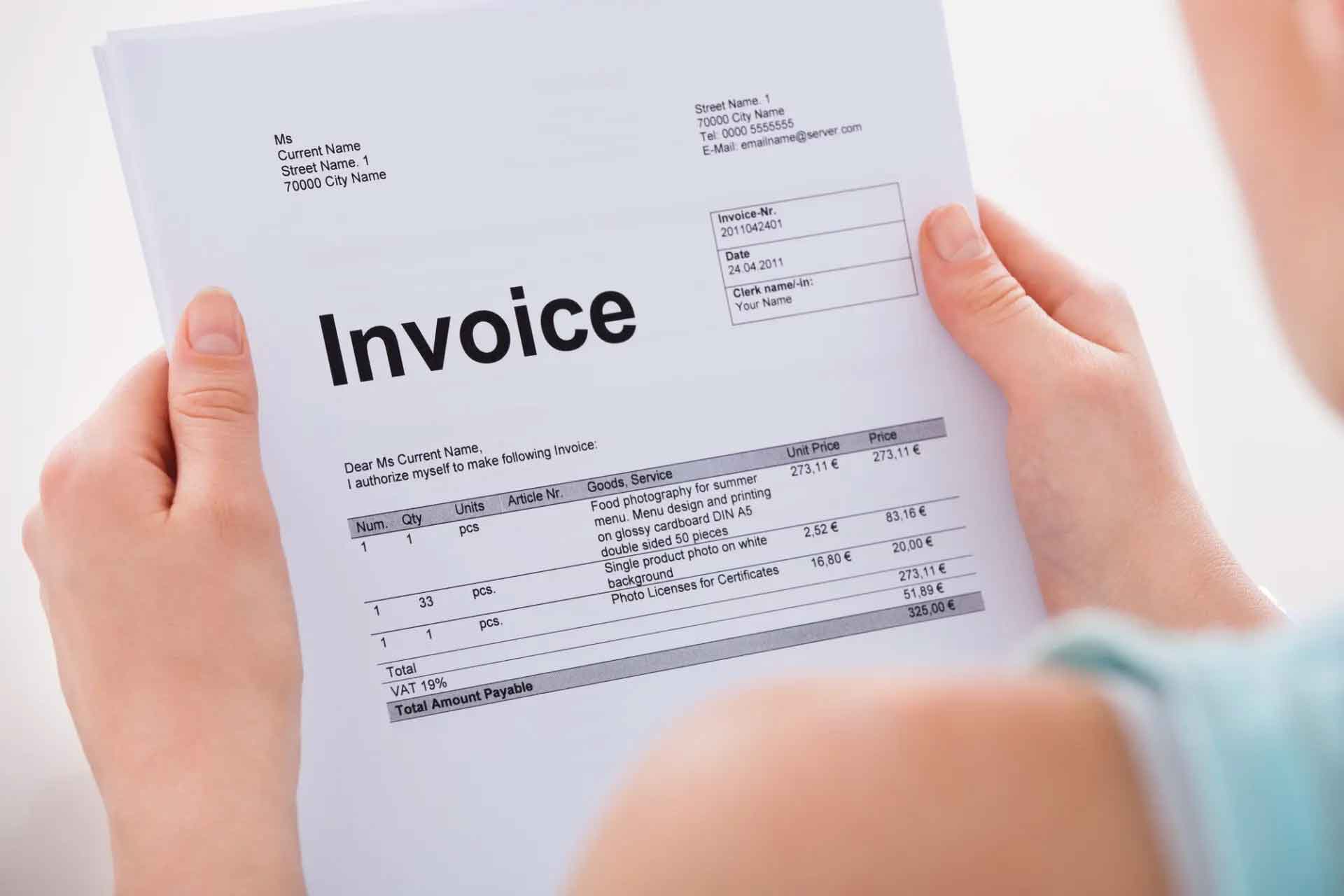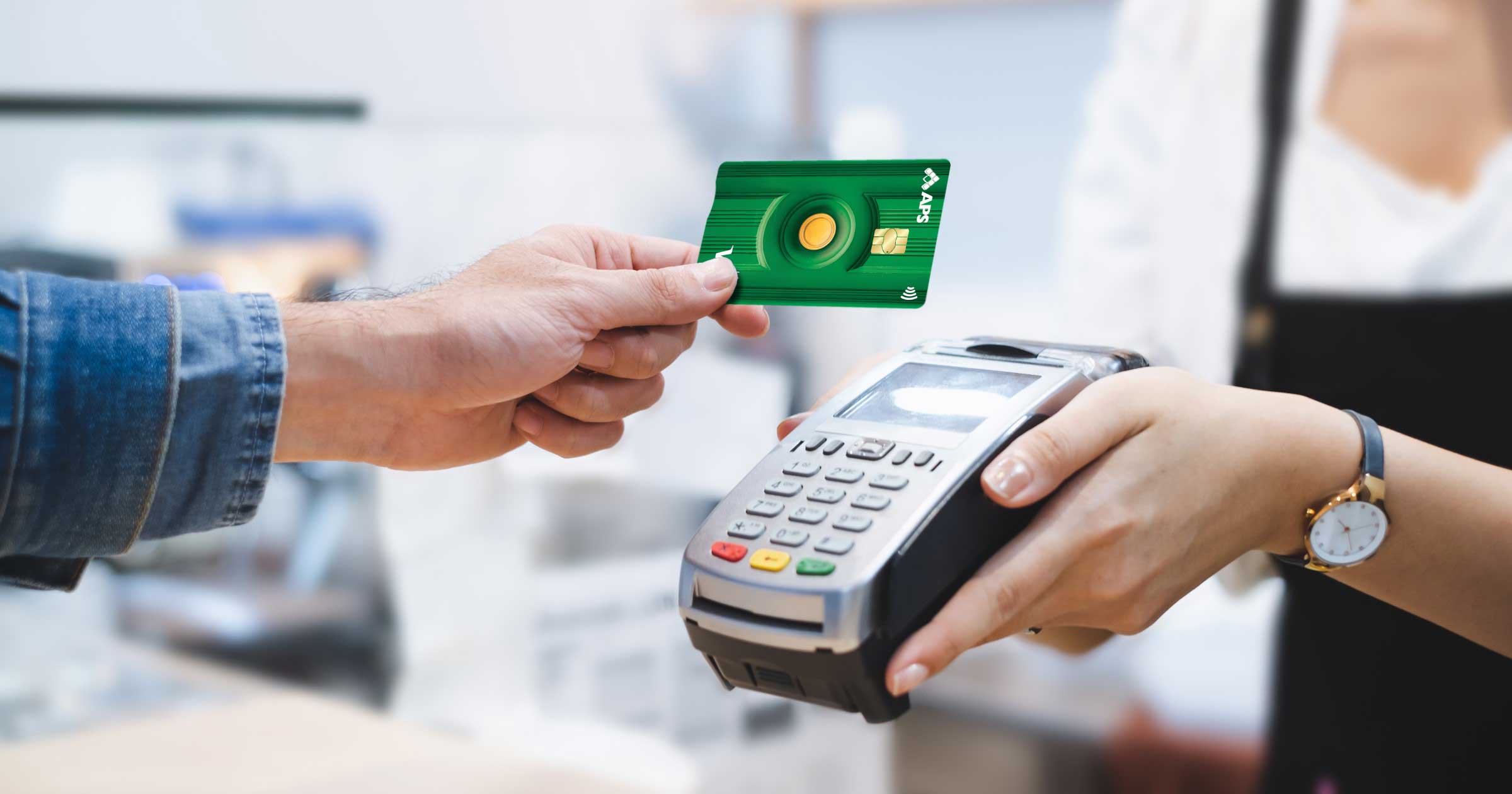

Finance
How To Pay A Contractor With A Credit Card
Published: November 9, 2023
Learn how to pay a contractor with a credit card effortlessly. Discover the benefits of using finance options for your home improvement projects.
(Many of the links in this article redirect to a specific reviewed product. Your purchase of these products through affiliate links helps to generate commission for LiveWell, at no extra cost. Learn more)
Table of Contents
- Introduction
- Advantages of Paying a Contractor with a Credit Card
- Things to Consider Before Paying a Contractor with a Credit Card
- Steps to Pay a Contractor with a Credit Card
- Choosing the Right Credit Card for Contractor Payments
- Potential Issues and Risks of Paying a Contractor with a Credit Card
- Alternatives to Paying a Contractor with a Credit Card
- Conclusion
Introduction
When it comes to paying a contractor for their services, most people automatically think of traditional payment methods such as cash, checks, or bank transfers. However, in today’s digital age, there is another convenient and secure option available: paying a contractor with a credit card.
Sometimes, paying with a credit card can provide numerous advantages, such as earning reward points, enjoying purchase protection, and even potentially improving your credit score. However, it is important to carefully consider the pros and cons before deciding to pay a contractor with a credit card.
In this article, we will explore the advantages of paying a contractor with a credit card, the things to consider before making the decision, the steps involved in the process, and the potential issues and risks associated with this payment method. We will also touch on alternative payment options to help you make an informed choice.
So, if you’re curious about how to pay a contractor with a credit card and want to explore the benefits and potential drawbacks, this article is for you.
Advantages of Paying a Contractor with a Credit Card
Paying a contractor with a credit card offers several advantages that can make the process more convenient, secure, and even rewarding. Let’s take a closer look at some of these benefits:
- Rewards and cashback: One of the biggest advantages of using a credit card for contractor payments is the opportunity to earn rewards or cashback. Many credit cards offer reward programs where you can earn points or cashback on your purchases. By using your credit card to pay contractors, you can accumulate points or earn cashback, which can be redeemed for various benefits such as travel rewards, gift cards, or statement credits.
- Purchase protection: Credit cards often come with purchase protection features such as extended warranties and fraud protection. This means that if there are any issues with the services provided by the contractor, or if the contractor fails to deliver as promised, you may be able to dispute the charges with your credit card issuer to seek a refund. This added layer of protection can provide peace of mind when hiring a contractor.
- Convenience and flexibility: Using a credit card for contractor payments offers a high level of convenience and flexibility. You no longer have to carry and handle large sums of cash or write multiple checks. With a credit card, you can simply provide the card information to the contractor, and the payment can be processed quickly and securely.
- Record-keeping and accountability: Credit card statements serve as a detailed record of your transactions. When paying a contractor with a credit card, you have a clear paper trail that can be useful for record-keeping, budgeting, and tax purposes. It also provides a layer of accountability as both you and the contractor have documentation of the transaction.
- Opportunity to build credit: Consistently paying contractors with your credit card and promptly paying off the balances can help improve your credit score. Timely credit card payments demonstrate responsible financial behavior and can boost your creditworthiness over time, making it easier to access credit in the future for larger projects or purchases.
These advantages make paying a contractor with a credit card an appealing option for many individuals. However, before making the decision, it is important to consider the specific circumstances and potential downsides, which we will explore in the next section.
Things to Consider Before Paying a Contractor with a Credit Card
While there are several advantages to paying a contractor with a credit card, it is essential to consider a few factors before finalizing your decision. Here are some important things to consider:
- Accepted payment methods: Not all contractors may accept credit card payments. Before proceeding, make sure to discuss payment options with the contractor and confirm if they are open to receiving payment via credit card. If they do not accept credit cards, you may need to explore alternative payment methods.
- Merchant fees: Keep in mind that when you pay a contractor with a credit card, they may incur merchant fees. While contractors might build these fees into their pricing, it is always a good idea to clarify this upfront to avoid any surprises and consider if the cost is acceptable to you.
- Credit card interest rates: If you do not plan to pay off the credit card balance immediately, it’s crucial to be aware of the interest rates associated with your credit card. If the interest rates are high, the cost of financing the contractor payment may outweigh the benefits and rewards of using the credit card.
- Contractor’s trustworthiness: Before entrusting a contractor with your credit card information, it’s essential to do your due diligence. Check for references, read reviews, and ensure that the contractor has a reputable track record. This step will help minimize the risk of any fraudulent charges or unauthorized transactions.
- Payment amount and credit limit: Consider the payment amount and your credit card’s available credit limit. Make sure your credit card has a sufficient credit limit to accommodate the payment without adversely impacting your credit utilization ratio. It’s also wise to avoid maxing out your credit card, as it can negatively affect your credit score.
- Payback plan: If you plan to use a credit card for contractor payments, it’s crucial to have a realistic payback plan in place. Ensure that you have the financial means to pay off the credit card balance to avoid incurring high interest charges. Planning and budgeting ahead will help you manage your credit card payments effectively.
Considering these factors is vital to make an informed decision about whether paying a contractor with a credit card is the right choice for you. Next, we will outline the steps involved in paying a contractor with a credit card to guide you through the process.
Steps to Pay a Contractor with a Credit Card
If you have decided to pay a contractor with a credit card, here are the steps involved in the process:
- Confirm acceptance: Ensure that the contractor accepts credit card payments. Discuss the payment method with the contractor and confirm their willingness to receive payment via credit card.
- Get the contractor’s information: Obtain the necessary information from the contractor to process the payment. This may include their name, business name, billing address, and phone number.
- Choose your credit card: Select the credit card you wish to use for the payment. Consider factors such as rewards, cashback, and interest rates when deciding on the appropriate card.
- Provide the credit card information: Share your credit card details securely with the contractor. This can be done over the phone, through a secure online payment portal, or by filling out a credit card authorization form.
- Confirm the payment: Double-check the payment details, including the amount, before finalizing the transaction. Make sure all the information is accurate to avoid any issues or discrepancies.
- Keep a record: Save all the documentation related to the payment, including receipts, invoices, and any correspondence with the contractor. This will serve as a reference for future inquiries or disputes.
- Monitor your credit card statement: Regularly review your credit card statement to ensure that the payment has been processed correctly. If you notice any unauthorized charges or discrepancies, contact your credit card issuer immediately.
- Pay off the balance: Depending on your financial situation, aim to pay off the credit card balance promptly to avoid accruing interest charges. Set a budget and allocate funds to clear the payment as soon as possible, ensuring responsible credit card usage.
By following these steps, you can successfully pay a contractor with your credit card while maintaining control over the transaction process. However, it’s important to be aware of potential issues and risks associated with this payment method, which we will discuss in the next section.
Choosing the Right Credit Card for Contractor Payments
When it comes to paying a contractor with a credit card, selecting the right credit card is crucial to maximize the benefits and rewards. Here are some factors to consider when choosing the right credit card:
- Rewards program: Look for credit cards that offer rewards or cashback on contractor payments. Consider the type of rewards offered, such as travel points, cashback, or statement credits, and choose a card that aligns with your preferences and spending habits.
- Interest rates and annual fees: Pay attention to the interest rates and annual fees associated with the credit card. If you plan to carry a balance, look for a card with a low-interest rate. If you want to avoid annual fees, explore credit cards that offer no annual fee or waive the fee for the first year.
- Introductory offers: Some credit cards offer introductory offers such as 0% APR on purchases for a certain period. If you are planning a large contractor payment, utilizing an introductory offer can help you save on interest charges during the promotional period.
- Flexibility for contractor payments: Ensure that the credit card you choose can be used for contractor payments. Some cards have restrictions on the types of transactions that qualify for rewards, so verify that contractor payments will be eligible.
- Security features: Consider credit cards that offer additional security features such as fraud protection, purchase protection, and zero-liability policies. These features can provide peace of mind when making large payments to contractors.
- Credit limit: Assess your credit limit and ensure it is sufficient to accommodate the contractor payment. If necessary, you may want to request a credit limit increase from your credit card issuer to avoid any issues and maintain a healthy credit utilization ratio.
- Additional perks: Some credit cards come with additional perks such as travel insurance, extended warranties, or concierge services. Evaluate if these perks are valuable to you and if they outweigh the potential costs associated with the credit card.
By considering these factors and assessing your personal financial needs and preferences, you can choose a credit card that provides the best value for paying contractors. Remember to compare different credit cards, review the terms and conditions, and select the card that aligns with your goals and financial situation.
Potential Issues and Risks of Paying a Contractor with a Credit Card
While paying a contractor with a credit card offers numerous advantages, it’s essential to be aware of potential issues and risks that may arise. Here are some potential drawbacks to consider:
- Merchant fees: Paying contractors with a credit card may result in additional fees for the contractor. This is because credit card processors charge a fee for each transaction, which contractors may pass on to their clients. It’s important to clarify this upfront and determine if the added cost is acceptable to both parties involved.
- Interest charges: If you are unable to pay off the credit card balance in full each month, you may incur high interest charges. This can increase the cost of the contractor payment over time, potentially outweighing any rewards or benefits accrued from using the credit card.
- Fraud and security risks: Sharing your credit card information with a contractor may expose you to fraud or unauthorized charges. It’s vital to ensure that the contractor has a secure system in place for handling sensitive financial information. Additionally, regularly monitor your credit card statements for any suspicious activity and report it immediately to your credit card issuer.
- Disputes and chargebacks: In the event of unsatisfactory work or contract disputes, resolving issues when paying with a credit card can be more complex compared to other payment methods. While credit cards offer purchase protection, there may be limitations to what can be disputed or resolved through chargebacks. Familiarize yourself with the credit card issuer’s policies and procedures for dispute resolution.
- Credit utilization ratio: Making significant contractor payments with a credit card can impact your credit utilization ratio, which compares your credit card balances to your credit limits. A high utilization ratio can negatively affect your credit score. To mitigate this, consider making multiple payments throughout the month or requesting a credit limit increase to maintain a healthy credit utilization ratio.
- Limited acceptance: Not all contractors may accept credit card payments due to the associated transaction fees or their payment processing capabilities. It’s essential to verify the contractor’s acceptance of credit cards before assuming that it’s a viable payment method.
- Dependency on credit: Relying heavily on credit cards for contractor payments may lead to a dependency on credit and potential financial strains if you accumulate too much debt. It’s important to evaluate your financial situation and use credit responsibly to avoid getting into excessive debt.
Being aware of these potential issues and risks allows you to make an informed decision about whether paying a contractor with a credit card is the right choice for your specific circumstances. Consider the potential benefits and drawbacks, and weigh them against your financial goals and preferences.
Alternatives to Paying a Contractor with a Credit Card
While paying a contractor with a credit card may seem convenient, it is not the only payment option available. It’s important to explore alternative methods to determine which one suits your needs best. Here are some alternatives to consider:
- Cash: Paying in cash is a straightforward and immediate method. It eliminates transaction fees and avoids the need to disclose sensitive credit card information. However, it may not provide the same level of record-keeping and security as credit card payments.
- Checks: Writing a check to a contractor is a common payment method. It allows for easy tracking of payments, and there is no need to disclose credit card information. However, checks can take time to process, and there is a risk of lost or bounced checks.
- Bank transfers: Transferring funds directly from your bank account to the contractor’s account provides a secure and quick payment option. It offers record-keeping capabilities and eliminates the need for physical cash or checks. However, both parties must have bank accounts, and there may be transaction fees depending on the banks involved.
- Online payment platforms: Online payment platforms like PayPal, Venmo, or Zelle offer secure and convenient ways to transfer money. These platforms allow for easy tracking, provide purchase protection, and eliminate the need for sharing credit card information. However, both parties must have accounts on the same platform for seamless transactions.
- Payment apps: There are various payment apps available that allow you to make payments directly from your mobile device. These apps provide an efficient and secure way to transfer funds. However, ensure that the contractor accepts payments through the specific app you choose.
- Installment payments: If the contractor agrees, you may be able to set up an installment payment plan. This could involve making payments over a defined period until the full amount is settled. It allows for better financial planning and flexibility. However, it’s important to establish clear terms and any applicable interest or finance charges.
- Letter of credit: In some cases, a letter of credit may be used for large-scale projects. This involves the bank guaranteeing payment to the contractor upon completion of specific milestones or work. It provides security for both parties involved but may involve additional administrative steps.
Consider your specific situation, the contractor’s preferences, and the level of convenience, security, and record-keeping you desire when choosing an alternative payment method. Each method has its own advantages and potential disadvantages, so it’s essential to weigh them against your needs and preferences.
Before finalizing any payment method, discuss it with the contractor to ensure their acceptance and to establish a clear agreement regarding payment terms and expectations.
Conclusion
Paying a contractor with a credit card can offer several advantages, including the opportunity to earn rewards, enjoy purchase protection, and benefit from convenience and flexibility. However, it is essential to carefully consider the factors discussed in this article before deciding if paying with a credit card is the right choice for you.
Before proceeding with credit card payments, ensure that the contractor accepts credit cards as a method of payment and clarify any additional merchant fees associated with this payment method. Consider the interest rates and annual fees of your credit card, as well as your ability to pay off the balance promptly to avoid accumulating interest charges.
While paying contractors with a credit card can be convenient, it is vital to prioritize security and protect your sensitive information. Verify that the contractor has a secure system in place for handling credit card information to mitigate the risk of fraud or unauthorized charges.
If paying with a credit card poses too much risk or is not feasible, there are alternative payment methods to consider, such as cash, checks, bank transfers, online payment platforms, or installment plans. Each method has its advantages and potential drawbacks, so it’s important to evaluate them based on your specific circumstances.
Ultimately, the decision to pay a contractor with a credit card or choose an alternative method depends on your personal preferences, financial situation, and the contractor’s acceptance. By considering the advantages, potential issues, and alternative options discussed in this article, you can make an informed decision that best aligns with your needs and priorities.
Remember to communicate clearly with the contractor, establish payment terms, and retain documentation for future reference. By carefully managing your contractor payments, you can not only complete your projects successfully but also protect your financial well-being.














